HamSCI Workshop 2020: The Auroral Connection
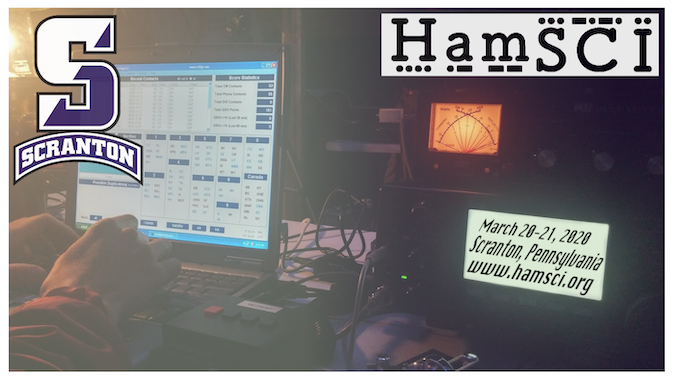
March 20-21, 2020
A Virtual Workshop Hosted by The University of Scranton
Come join HamSCI at its third annual workshop! Due to restrictions caused by the COVID-19 Coronavirus, this year's workshop will he held as a virtual, eletronic workshop. The meeting will take place March 20-21, 2020 using Zoom Webinar Services hosted by The University of Scranton in Scranton, PA . The primary objective of the HamSCI workshop is to bring together the amateur radio community and professional scientists. The theme of the 2020 HamSCI Workshop is "The Auroral Connection: How does the aurora affect amateur radio, and what can we learn about the aurora from radio techniques?" Invited speakers include Dr. Elizabeth MacDonald, NASA Scientist and founder of Aurorasaurus, Dr. James LaBelle, Dartmouth Space Scientist and expert on radio aurora, and Dave Hallidy K2DH, an expert in ham radio auroral communication.
This workshop will also serve as a team meeting for the HamSCI Personal Space Weather Station project, an NSF-funded project to develop a citizen science instrument for studying space weather from your backyard. The PSWS is led by the University of Scranton, and includes participation from TAPR, Case Western Reserve University/W8EDU, the University of Alabama, the New Jersey Institute of Technology CSTR, MIT Haystack Observatory, Dartmouth College, and the ham radio community at large.
Participation and Registration
Participation is free thanks to support from the The University of Scranton and National Science Foundation.
Participation in the 2020 HamSCI Workshop will be via Zoom Webinar. Registration and participation is free and open to all. To prepare and make sure you are ready to participate in the 2020 HamSCI Workshop, please visit the Zoom Website and create free account. You can then download the client software and test it by creating your own free test meeting. The Zoom client will work on Windows, Apple OS X, Linux, Android, iPad, and iPhone.
This meeting is being recorded and will be available later.
Community Participation Guidelines
All participants in the HamSCI workshop must adhere to the HamSCI Community Participation Guidelines. Those that do not follow these guidelines will be asked to leave.
Presenter Information
Oral presentations will be given in the same format as if they were at the in-person workshop. Please familiarize yourself with the Zoom teleconferencing software by creating a free Zoom account, downloading the client software, and testing it by creating your own free test meeting.
Posters and demonstrations will also be presented via Zoom, but there are special instructions to adapt the poster session to electronic format. If you are a Poster or Demonstration presenter, please click here for updated information.
Invited Speakers
Invited Talk: Tim Duffy, K3LR, “Let’s Push the Exploration of the Ionosphere to The Next Level”
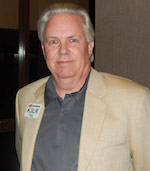
Invited Talk: David Hallidy, K2DH, “Amateur Auroral Communications”
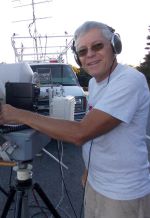
Invited Talk: Dr. Elizabeth MacDonald, “Aurorasaurus: Citizen Science Observations of the Aurora”
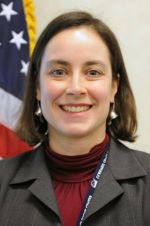
Liz MacDonald's research has focused on experimental particle measurement techniques and data analysis in the magnetosphere and ionosphere for the last 15 years. Liz is currently a Co-Investigator (Co-I) on the Helium, Oxygen, Proton, and Electron Spectrometer on the NASA Van Allen Probes mission. At Los Alamos National Laboratory, Liz was the Principal Investigator (PI) for the Z-Plasma Spectrometer on the DOE Space and Atmospheric Burst Reporting System (SABRS) geosynchronous payload. Liz also led the Innovative Research and Integrated Sensing (IRIS) team. In the recent past Liz led the DoE-funded Technology Infusion Project entitled Modular Advanced Space Environment Instrumentation (from 2009-2011) and served as the PI for the Advanced Miniaturized Plasma Spectrometer on the DOE SABRS Validation Experiment payload (2007-2008). Liz has a blend of expertise in both instrument development and data analysis and interpretation that comes from sounding rocket and satellite instrumentation experience. This experience ranges over the complete cycle of instrument production, including design and modeling, integration and testing, calibration, satellite operations, and in situ scientific data analysis. General interests include instrument technology development, basic magnetospheric science, and space situational awareness national priorities. Specific research interests include wave-particle interactions and the effect of plasma on radiation belt dynamics, mapping, coupling, and transport between the ionosphere and the inner magnetosphere, and the impact of heavy ions on geomagnetic storm processes. Liz holds Masters and PhD degrees from the University of New Hampshire and a Bachelor's in Physics from the University of Washington (largely funded by a NASA Space Grant scholarship). Liz is the founder and leader of Aurorasaurus, a citizen science project for the study of the aurora.
Invited Talk: Dr. James LaBelle, “Observing Radio Signals of Auroral Origin”
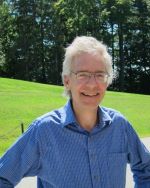
Science/Program Committee
- Dr. Nathaniel Frissell, W2NAF, University of Scranton, Chair
- Dr. Phil Erickson, W1PJE, MIT Haystack Observatory
- Dr. Cathryn Mitchell, M0IBG, University of Bath
- Dr. Elizabeth MacDonald, NASA Goddard Space Flight Center
- Mr. Bill Liles, NQ6Z, HamSCI Community
Local Organizing Committee (University of Scranton)
- Dr. Mohammad A. Maktoomi, Chair
- Dr. Declan Mulhall
- Ms. Laurie McCoy, Administrative Assistant
- Ms. Frani Mancuso, Executive Director of Conference & Event Services
Questions?
Please e-mail hamsci@hamsci.org.
The 2020HamSCI Workshop is hosted by The University of Scranton. Financial support is provided by the United States National Science Foundation.

